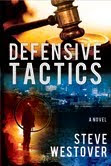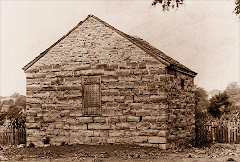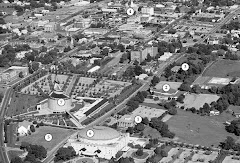
In every major world religion, from Budhism to Islam, from Hinduism to Judaism to Christianity, fasting has been taught as a vital component to true worship.
We are taught in the LDS tradition that obeying the law of the fast provides each of us with the opportunity to access great blessings from our Heavenly Father, as well as the ability to bless the lives of our friends, neighbors and family. Fasting produces physical well-being, self mastery, opportunity to help others, and spiritual strength.
Why is it important to fast? The Church Handbook of instructions states, “fasting, accompanied by prayer, is a form of worship. The Lord has commanded His people to fast to help them draw close to Him, overcome worldliness, gain spiritual strength, increase their compassion, and prepare themselves for service. Fasting is fundamental to spiritual well-being and temporal welfare.”
Matthew 22:37-40 (What is the greatest Commandment?) We can show our love for our Heavenly Father and our Savior, as well as our neighbors by observing the law of the fast. The Law of the fast “Hangs” on these 2 commandments.
Joseph B Wirthlin stated “ When we fast, brethren and sisters, we feel hunger. And for a short time, we literally put ourselves in the position of the hungry and needy. As we do so, we have greater understanding of the deprivations they might feel.” (The Law of the Fast, Ensign May 2001)
President Gordon B Hinkley has said “ Out of a sense of love for the less fortunate among our own, let us observe the law of the fast, going without a little food which we do not need—and contributing the value thereof and even more to help those who are in desperate circumstances.” (Let Love Be the Lodestar of your life, Ensign May 1989) When we fast properly we show our love to God and our Neighbors and we succeed in being obedient to the 2 great commandments.
What is involved in a proper fast? 4 factors in proper observance of fast day.
1- Abstain from food and drink for 2 consecutive meals. This means 24 hours. I have been a bad example of what a true fast should be. Saturday night dinner and snacks. I haven’t planned ahead to make my fast meaningful.
2- Pray- Elder Wirthlin teaches us that “without prayer, fasting is not complete fasting; it is simply going hungry.” D&C 88:76 “Ye shall continue in prayer and fasting from this time forth. “
When the deciples were unable to cure a boy who was possessed of an evil spirit, they asked the Savior “Why could we not cast him out?” Jesus responded “ This kind goeth not out but by prayer and fasting” (Matt 17:19, 21)
Speaking to BYU students about fasting, President Hinkley said “I hope you haven’t prayed for snow with the hope that you could go skiing on Sunday. I believe that the Lord will hear our earnest supplications, if we will back up our fasting and prayers with goodness in our lives.”
Without prayer, there is no purpose to the fast. We are not offering up the desires of our heart to the Lord. In addition to beginning and ending our fast with prayer, we should seek the Lord often in personal prayer throughout the fast.
3- Testify- This is a part of fast day that I personally forget about. I know we have testimony meeting, but I forget that testifying is part of my personal worship.
4- Contribute- President Hinkley says “ It is not a burden to refrain from two meals a month and give the value thereof to assist in caring for the poor. It is, rather, a blessing. Not only will physical benefits flow from the observance of this principle, but spiritual values also.” Another time he stated “ If every member of this Church observed the fast and contributed generously, the poor and the needy—not only of the Church, but many others as well, would be blessed and provided for. Every giver would be blessed in body and spirit and the hungry would be fed, the naked clothed according to need.”
When we humble ourselves by fasting properly, we will be strengthened spiritually and the Lord will listen to the desires of our hearts. If we know what a proper fast is, but we cut corners, what message are we sending to the Lord? I think the message is that whatever we are fasting about is not THAT important to us, or that we do not truly desire to gain the spiritual strength that we know we could achieve through proper fasting.
Elder Carl B Pratt said “ I fear that too many of us are either not fasting on fast day or we are doing so in a lacksidaisical manner. If we are guilty of taking our fast day for granted or simply fasting Sunday morning instead of making it two complete meals –24 hours- we are depriving ourselves and our families of the choice spiritual experiences and blessings that can come from a true fast.” (The blessings of a proper fast, Ensign, Nov 2004)
When do we fast? Elder Pratt has taught “ In addition to occasional special fasts that we might have for personal or family reasons, we are expected to fast once a month on the first Sunday.” He continues “For those who are physically able, fasting is a commandment.” President Joseph F. Smith said “Those who can are required to comply… it is a duty from which they cannot escape. It is left with the people as a matter of conscience, to exercise wisdom and discretion.”
The first Sunday of each month has been set aside as fast Sunday and worship services include fast and testimony meeting. We are commanded, if we are physically able, to fast on this day and it is our duty to do so.
President Joseph Fielding Smith explains the genesis of why we hold fast and testimony meeting on the first Sunday of each month. “ From the organization of the Church the principle of fasting in the spirit of prayer has been a commandment of the Lord (See D&C 59:8-13 & D&C 88:76, 119) On December 8, 1867 President Young said.. ’You know that the first Thursday in each month we hold fast day. The Prophet Joseph said there should be a fast day, which was decided upon. It was to be held once a month, as it is now, and all that would have been eaten that day, of flour, or meat, or butter, or fruit, or anything else, was to be carried to the fast meeting and put in the hands of a person selected for the purpose of taking care of the poor. If we were to do this now faithfully, (Said President Young) do you think the poor would lack for flower? No! There would be more than could be used by all the poor among us.’ (End Brigham Young)
Joseph Fielding Smith continues, "This custom of holding fast meetings on Thursday was continued in Nauvoo and also after the coming of the members of the church to the Rocky Mountains."
Why is it important to fast? The Church Handbook of instructions states, “fasting, accompanied by prayer, is a form of worship. The Lord has commanded His people to fast to help them draw close to Him, overcome worldliness, gain spiritual strength, increase their compassion, and prepare themselves for service. Fasting is fundamental to spiritual well-being and temporal welfare.”
Matthew 22:37-40 (What is the greatest Commandment?) We can show our love for our Heavenly Father and our Savior, as well as our neighbors by observing the law of the fast. The Law of the fast “Hangs” on these 2 commandments.
Joseph B Wirthlin stated “ When we fast, brethren and sisters, we feel hunger. And for a short time, we literally put ourselves in the position of the hungry and needy. As we do so, we have greater understanding of the deprivations they might feel.” (The Law of the Fast, Ensign May 2001)
President Gordon B Hinkley has said “ Out of a sense of love for the less fortunate among our own, let us observe the law of the fast, going without a little food which we do not need—and contributing the value thereof and even more to help those who are in desperate circumstances.” (Let Love Be the Lodestar of your life, Ensign May 1989) When we fast properly we show our love to God and our Neighbors and we succeed in being obedient to the 2 great commandments.
What is involved in a proper fast? 4 factors in proper observance of fast day.
1- Abstain from food and drink for 2 consecutive meals. This means 24 hours. I have been a bad example of what a true fast should be. Saturday night dinner and snacks. I haven’t planned ahead to make my fast meaningful.
2- Pray- Elder Wirthlin teaches us that “without prayer, fasting is not complete fasting; it is simply going hungry.” D&C 88:76 “Ye shall continue in prayer and fasting from this time forth. “
When the deciples were unable to cure a boy who was possessed of an evil spirit, they asked the Savior “Why could we not cast him out?” Jesus responded “ This kind goeth not out but by prayer and fasting” (Matt 17:19, 21)
Speaking to BYU students about fasting, President Hinkley said “I hope you haven’t prayed for snow with the hope that you could go skiing on Sunday. I believe that the Lord will hear our earnest supplications, if we will back up our fasting and prayers with goodness in our lives.”
Without prayer, there is no purpose to the fast. We are not offering up the desires of our heart to the Lord. In addition to beginning and ending our fast with prayer, we should seek the Lord often in personal prayer throughout the fast.
3- Testify- This is a part of fast day that I personally forget about. I know we have testimony meeting, but I forget that testifying is part of my personal worship.
4- Contribute- President Hinkley says “ It is not a burden to refrain from two meals a month and give the value thereof to assist in caring for the poor. It is, rather, a blessing. Not only will physical benefits flow from the observance of this principle, but spiritual values also.” Another time he stated “ If every member of this Church observed the fast and contributed generously, the poor and the needy—not only of the Church, but many others as well, would be blessed and provided for. Every giver would be blessed in body and spirit and the hungry would be fed, the naked clothed according to need.”
When we humble ourselves by fasting properly, we will be strengthened spiritually and the Lord will listen to the desires of our hearts. If we know what a proper fast is, but we cut corners, what message are we sending to the Lord? I think the message is that whatever we are fasting about is not THAT important to us, or that we do not truly desire to gain the spiritual strength that we know we could achieve through proper fasting.
Elder Carl B Pratt said “ I fear that too many of us are either not fasting on fast day or we are doing so in a lacksidaisical manner. If we are guilty of taking our fast day for granted or simply fasting Sunday morning instead of making it two complete meals –24 hours- we are depriving ourselves and our families of the choice spiritual experiences and blessings that can come from a true fast.” (The blessings of a proper fast, Ensign, Nov 2004)
When do we fast? Elder Pratt has taught “ In addition to occasional special fasts that we might have for personal or family reasons, we are expected to fast once a month on the first Sunday.” He continues “For those who are physically able, fasting is a commandment.” President Joseph F. Smith said “Those who can are required to comply… it is a duty from which they cannot escape. It is left with the people as a matter of conscience, to exercise wisdom and discretion.”
The first Sunday of each month has been set aside as fast Sunday and worship services include fast and testimony meeting. We are commanded, if we are physically able, to fast on this day and it is our duty to do so.
President Joseph Fielding Smith explains the genesis of why we hold fast and testimony meeting on the first Sunday of each month. “ From the organization of the Church the principle of fasting in the spirit of prayer has been a commandment of the Lord (See D&C 59:8-13 & D&C 88:76, 119) On December 8, 1867 President Young said.. ’You know that the first Thursday in each month we hold fast day. The Prophet Joseph said there should be a fast day, which was decided upon. It was to be held once a month, as it is now, and all that would have been eaten that day, of flour, or meat, or butter, or fruit, or anything else, was to be carried to the fast meeting and put in the hands of a person selected for the purpose of taking care of the poor. If we were to do this now faithfully, (Said President Young) do you think the poor would lack for flower? No! There would be more than could be used by all the poor among us.’ (End Brigham Young)
Joseph Fielding Smith continues, "This custom of holding fast meetings on Thursday was continued in Nauvoo and also after the coming of the members of the church to the Rocky Mountains."
The change from the first Thursday to the first Sunday of the month came about in this manner. Hyrum M. Smith, who later became a member of the Council of the Twelve, was a missionary in Newcastle England, in the year 1896. On the Thursday of the fast meeting, members of the Church in that land had to get excused from their employment with a loss of pay. Some of them were workers in the coal mines. When these came from the pits, they had to go home, bathe, and change their clothes. This was a loss both of time and compensation.
Hyrum wrote to his father, President Joseph F. Smith, and asked why, under such circumstances, the fast day had to be a Thursday and not a Sunday. President Smith took the letter to the meeting of the First Presidency and the apostles and presented it there.” That is how our fast and testimony meetings came to be on Sundays instead of Thursdays as was originally appointed by the Prophet Joseph Smith. Despite this change in administration, the doctrine of the fast has not changed.
We can fast whenever we have special needs, when we need to humble ourselves or simply want to commune with God. After Moses broke the original tablets on which the commandments were written, he returned to mount Sinai to create new tablets. While on the mountain he communed with the Lord for 40 days and 40 nights and he fasted to be purified and to show his humility and devotion to the Lord.” (Exodus 34:1-2, 28)



























